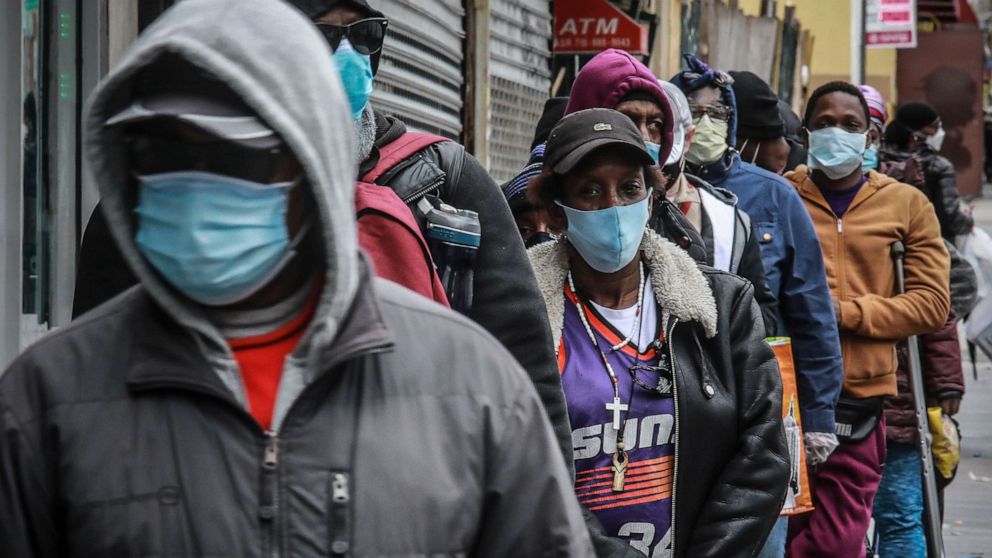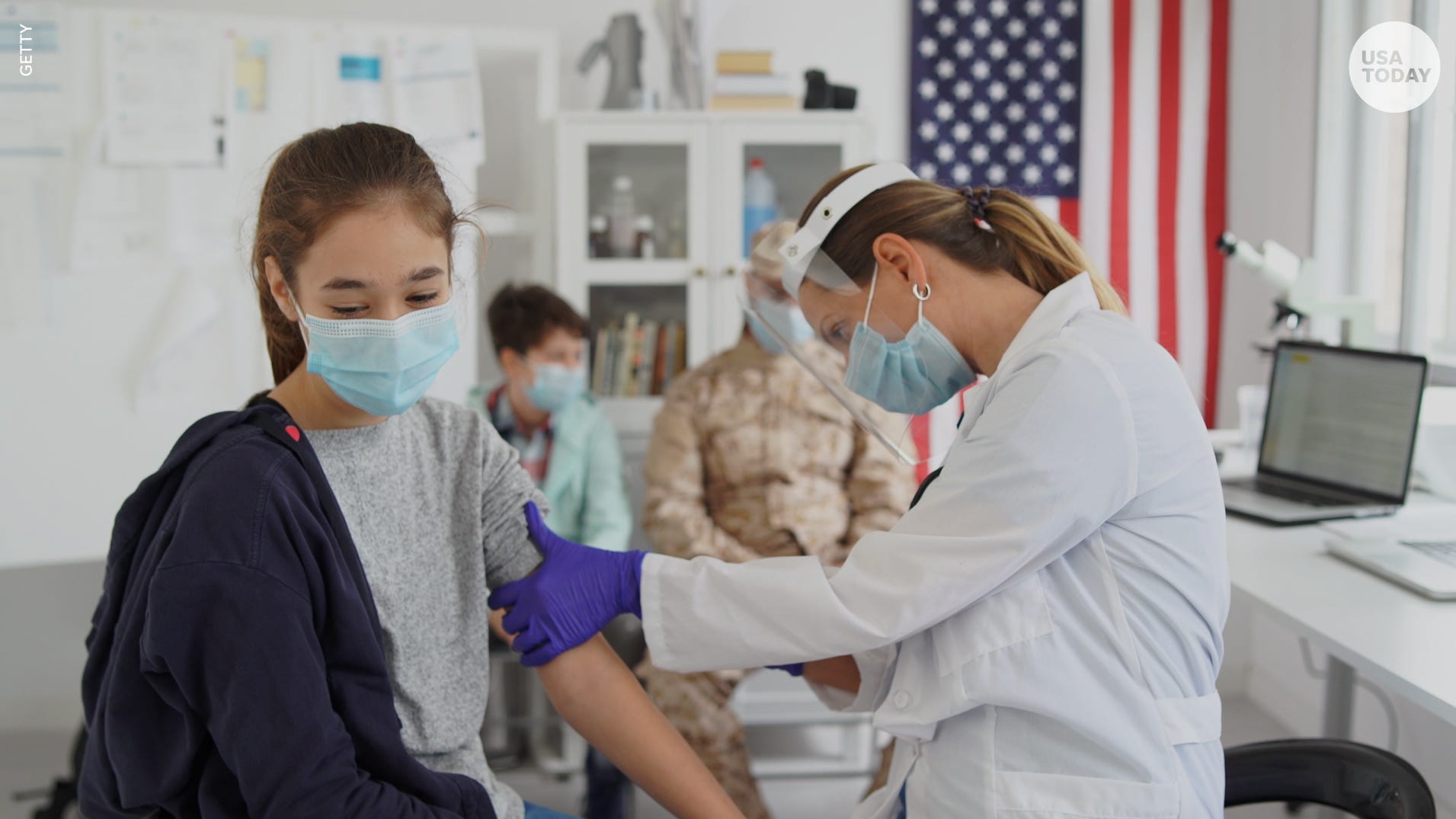US facing possible new COVID-19 wave
US’ Centers for Disease Control and Prevention has stated that hospitalizations due to COVID-19 are increasing in US, adding that it could be indicative of a new COVID-19 wave. “We’ve seen the early indicators go up for the past several weeks…We’ve seen hospitalisations tick up as well. This could be the start of a late summer wave,” CDC official said.

Dr. Brendan Jackson, the Covid incident manager at the Centers for Disease Control and Prevention (CDC) in Atlanta, recently reported that there has been a notable change in the Covid-19 situation in the United States. After witnessing approximately six to seven months of consistent declines in Covid cases, health officials are now detecting signs of an upward trend. This development has raised concerns among experts who continue to closely monitor and manage the pandemic in the country.
In a statement to NPR, Dr. Jackson expressed his observations about the recent trends in Covid cases. He noted that over the past several weeks, there has been a gradual increase in early indicators, suggesting a potential shift in the trajectory of the pandemic. Moreover, this week marked a significant turning point as hospitalizations, which had been on a decline, started to tick up again.
The possibility of a late summer wave of Covid cases is a major concern among health authorities. Dr. Jackson emphasized that the spikes in cases have been particularly pronounced in the Southeast region of the United States. This geographical pattern has raised alarms as it indicates that certain areas may be more susceptible to surges in Covid cases.
While the current situation is being closely monitored, Dr. Jackson also highlighted the emergence of “mutagenic” subvariants of the virus in Asia. Although these developments are concerning, he reassured the American public that for most people in the US, the early signs of an increase in Covid cases may not necessarily warrant immediate panic or drastic changes in behavior. However, he emphasized the need for continued vigilance and adherence to preventive measures to curb the spread of the virus.
The CDC’s Covid incident manager’s observations come at a critical time when the nation is still grappling with the pandemic’s impact. Despite progress made in vaccination efforts and declining case numbers in recent months, the recent uptick in Covid cases serves as a reminder that the virus remains a persistent threat.
The surge in Covid cases in the Southeast has prompted health officials to closely analyze the factors contributing to the rise. As the region experiences an increase in cases, authorities are closely examining the possible causes, including variations in vaccination rates, social behaviors, and the potential influence of Covid variants.
While the situation in the US continues to evolve, health experts are urging the public not to disregard the importance of Covid prevention measures. Vaccination remains a critical tool in combating the virus, and efforts to promote vaccination and accessibility to vaccines are ongoing. Health officials are working tirelessly to reach vulnerable populations and encourage vaccine uptake.
The emergence of “mutagenic” subvariants in Asia has added another layer of complexity to the global fight against Covid. These subvariants are believed to have genetic mutations that could potentially impact the virus’s behavior and transmissibility. While there is still much to learn about these subvariants and their potential implications, health authorities are closely collaborating with international partners to monitor the situation and adapt response strategies accordingly.
The changing dynamics of the pandemic underscore the need for continued vigilance and adaptability in public health efforts. As Covid remains a fluid and evolving situation, health officials are emphasizing the importance of being prepared to respond to new challenges that may arise. This includes maintaining robust surveillance and testing capabilities, strengthening healthcare infrastructure, and ensuring access to accurate and timely information for the public.
In conclusion, the recent indications of an upward trend in Covid cases after a period of consistent declines warrant careful attention from health authorities in the United States. While the situation is concerning, it is important to remain proactive and responsive in managing the pandemic. Continued adherence to preventive measures and vaccination efforts will be crucial in curbing the spread of the virus and protecting public health. As the nation navigates this critical phase of the pandemic, collaboration between health officials, communities, and individuals will be essential in overcoming the challenges posed by Covid-19.

According to Dr. Brendan Jackson, the Covid incident manager at the CDC, the recent trends in Covid cases have raised concerns as early indicators are pointing towards an increase in infections. One of the most worrisome developments is the rise in hospitalizations, which had been on a decline in previous months. This uptick in hospital admissions suggests that the situation is becoming more serious and may indicate the onset of a late summer wave of Covid infections.
Of particular concern is the significant surge in cases observed in the Southeastern region of the United States. The higher incidence of infections in this area has caught the attention of health authorities and requires close monitoring to understand the factors contributing to the spread of the virus in that specific geographical area.
Health officials are taking these developments seriously and working diligently to comprehend and respond to the evolving dynamics of the pandemic. The potential for a late summer wave of Covid infections highlights the need for continued vigilance and preparedness in managing the pandemic.
As the situation continues to unfold, health authorities are emphasizing the importance of preventive measures, vaccination efforts, and adherence to public health guidelines. These measures remain critical in controlling the spread of the virus and protecting public health.
The rise in hospitalizations and Covid cases underscores the need for ongoing surveillance, testing, and contact tracing to identify and isolate cases promptly. Timely and effective responses are essential in containing the spread of the virus and mitigating its impact on healthcare facilities.
Overall, the observations made by Dr. Brendan Jackson highlight the ongoing challenges in managing the Covid pandemic and the importance of remaining proactive in responding to fluctuations in case numbers. As health authorities closely monitor the situation and work to curb the spread of the virus, it is crucial for individuals and communities to continue following recommended guidelines and prioritize vaccination to safeguard public health.

According to Dr. Brendan Jackson, another concerning aspect of the Covid pandemic is the emergence of “mutagenic” subvariants of the virus in Asia. These new subvariants may have genetic changes that could potentially impact the virus’s behavior and transmissibility. The situation in Asia requires careful monitoring and response from health authorities to understand the implications and address any potential risks.
However, Dr. Jackson also emphasized that for most people in the United States, the early signs of an increase in Covid cases don’t necessarily need to be a cause for immediate alarm. While it is essential to remain vigilant and responsive to any changes in case numbers, the impact on the US population may vary based on multiple factors, including vaccination rates, public health measures, and local transmission dynamics.
The United States has made significant progress in its vaccination efforts, with a substantial portion of the population having received at least one dose of the Covid vaccine. This widespread vaccination has contributed to reducing severe illness and hospitalizations, even as case numbers fluctuate.
Health authorities will continue to closely monitor the situation, assess data, and adapt response strategies as needed. As the pandemic remains dynamic, the approach to managing it must be flexible and responsive to changing conditions.
The emergence of new subvariants in Asia serves as a reminder that the Covid virus can evolve, and continued surveillance of global developments is critical. Health officials are keeping a watchful eye on the international landscape to inform their decisions and preparedness efforts within the United States.
As the world navigates through this complex and evolving pandemic, clear communication from health experts like Dr. Brendan Jackson is crucial in providing the public with accurate information about the current situation and the measures required to protect individual and community health.
In conclusion, the Covid pandemic continues to present challenges globally, with Asia witnessing the emergence of new subvariants that warrant attention and response. While early signs of an increase in cases in the United States have been observed, the impact on the population may differ based on vaccination rates and other factors. Health authorities will continue to closely monitor developments, maintain surveillance efforts, and adjust response strategies accordingly to protect public health. The importance of staying informed, following public health guidelines, and prioritizing vaccination cannot be understated as the world navigates through this ongoing health crisis.

According to CDC spokesperson Kathleen Conley, there have been early indicators of increased Covid-19 activity in the United States, including emergency department visits, test positivity rates, and wastewater levels. These indicators have preceded an uptick in hospitalizations observed in the past week. However, despite these recent developments, Covid rates in the country are still considered to be at “near-historic lows.”
Conley also noted that overall infection-related deaths in the US are on a decline and currently at their lowest rate since the CDC began tracking Covid data. This suggests that the efforts to control the spread of the virus and vaccination campaigns have had a positive impact on reducing severe illness and fatalities.
On the other hand, Dr. Marc Siegel, a professor of medicine at NYU Langone Medical Center, has warned that a summer surge of Covid cases is underway. This indicates that there may be an increase in infections during the summer months, possibly due to changes in behavior, travel patterns, and relaxation of public health measures.
The situation remains dynamic, and health authorities are closely monitoring the data to understand the trends and patterns of Covid-19 activity in the country. While there are signs of increased Covid activity and hospitalizations, it is essential to maintain perspective and recognize that overall infection-related deaths are declining.
Public health experts emphasize the importance of continued vigilance and adherence to preventive measures, such as vaccination, mask-wearing, and practicing social distancing when necessary, to mitigate the potential impact of any surge in cases.
As the pandemic evolves, clear communication from health officials like CDC spokesperson Kathleen Conley and expert analysis from professionals like Dr. Marc Siegel are crucial in providing the public with accurate information and guidance to navigate through this phase of the pandemic.
While there may be early indicators of increased Covid activity, the US has made significant progress in its response to the pandemic, with widespread vaccination and various preventive measures in place. These efforts have contributed to reducing infection rates and overall mortality, but it is vital to remain cautious and proactive in managing the ongoing pandemic.
As we move forward, the emphasis on vaccination, monitoring of Covid data, and flexible response strategies will continue to play a key role in safeguarding public health and mitigating the impact of potential surges in cases. The summer season and changes in behaviors may present new challenges, and staying informed and vigilant will be essential in the collective effort to control the spread of the virus.
According to Dr. Marc Siegel, while there are early indicators of increased Covid-19 activity in the United States, it is important to put these observations into context. He believes that the situation does not necessarily signal a harbinger of another surge, given the substantial immunity that still exists in the population from prior infections and vaccinations.
Dr. Siegel acknowledges the importance of wastewater analysis in monitoring Covid-19 trends, but he points out that the current level of immunity in the population, combined with the fact that most infections within the Omicron family are mild and hospitalizations show only a slight uptick, suggests that the situation is under control.

However, he emphasizes that the pandemic is not entirely extinguished, and there are still “embers of a fire” that need to be addressed. With this in mind, Dr. Siegel is likely to recommend the new XBB subvariant booster in the fall, especially for individuals in high-risk groups who have not recently been infected or vaccinated.
As a medical expert, Dr. Marc Siegel’s cautious approach highlights the importance of remaining vigilant and proactive in managing the ongoing Covid-19 pandemic. The combination of immunity from prior infection and vaccination has been instrumental in reducing severe cases and deaths, but it is essential to continue monitoring the situation and take targeted measures, such as booster vaccinations for high-risk groups, to further protect public health.
As the pandemic continues to evolve, recommendations from medical professionals like Dr. Siegel play a critical role in guiding public health strategies and ensuring that appropriate preventive measures are implemented to control the spread of the virus and protect vulnerable populations.
The approach of recommending the XBB subvariant booster in the fall for high-risk individuals aligns with the ongoing efforts to strengthen immunity and prevent severe outcomes from Covid-19. As more data becomes available and the situation unfolds, health authorities will continue to assess the efficacy of vaccination strategies and adapt their recommendations accordingly.
Overall, the public’s adherence to vaccination, preventive measures, and timely booster shots, as advised by medical experts like Dr. Marc Siegel, will be crucial in managing the pandemic and mitigating any potential resurgence of Covid-19 cases in the future.
















